Envisioning a “Salmon Nation”
Columbia River Basin
|
NEW ESRI StoryMaps: What's On Our Shelves & NWNL Song Library & No Water No Life ESRI |
Columbia River Basin
Dan Etra
Ecotrust Citizenship Program Manager
Alison M. Jones
NWNL Director and Photographer
This interview occurred near the end of NWNL’s Columbia River Source-to-Sea Expedition. Having travelled almost the full 1,243 miles of the Columbia River and many of its tributaries, I quickly grasped Dan’s broad vision of a continuous, transboundary “nation,” connected by salmon – a species that knows few boundaries, other than those imposed by concrete dams. Having learned of the multi-tribal Indigenous cultures created around salmon, I applaud the goals of EcoTrust, as set by Founding President Spencer Beebe.
Combining conservation, economies and communities, the EcoTrust nonprofit works with individuals, organizations, businesses and government agencies throughout the Pacific Northwest to build a “Salmon Nation” where people and salmon can thrive.
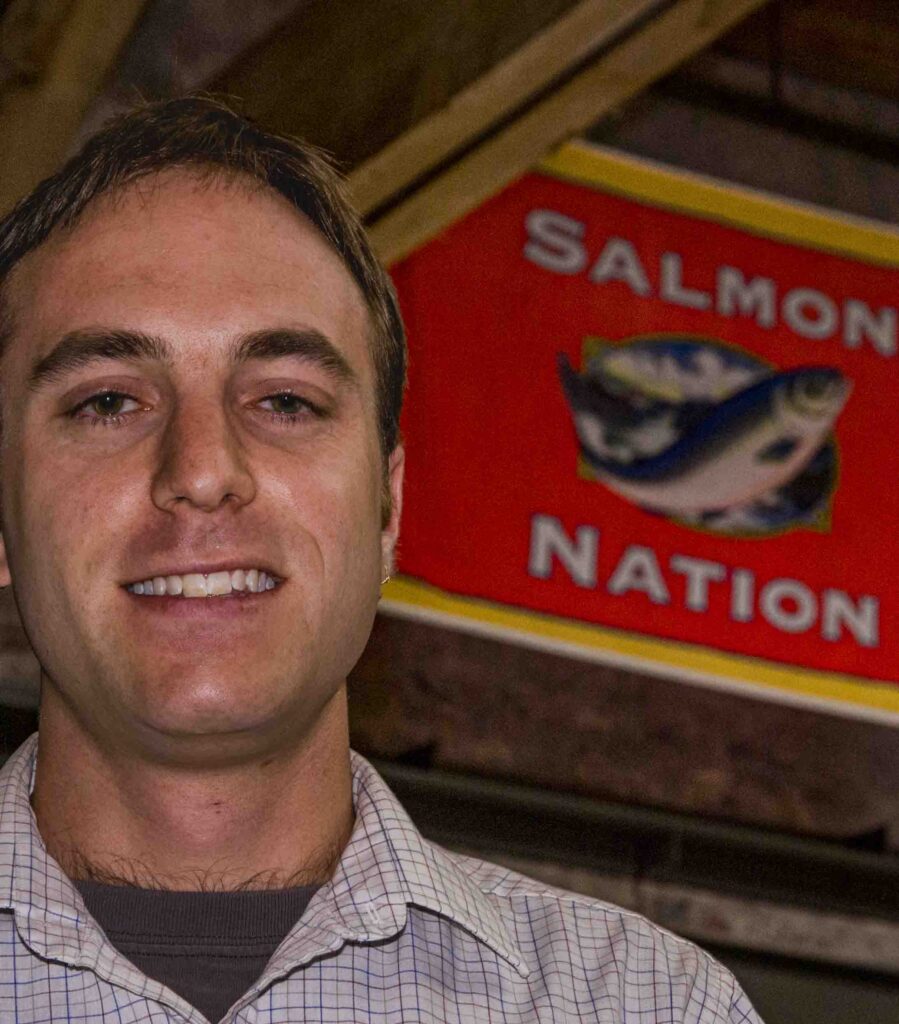
SALMON & TEMPERATE RAINFORESTS
SALMON & RAINFORESTS
SALMON PARTNERSHIPS
FOCUS on FORESTS
FISHERIES FOCUS
FOODS & FARMS FOCUS
NATIVE NATIONS FOCUS
CITIZENSHIP FOCUS
Key Quote The salmon story is our story…. Until we can reach a shared understanding of the role of salmon in our lives, unless we clarify the lines connecting salmon and ourselves, prospects for recovery for these irreplaceable species are poor. — Spencer Beebe, Ecotrust Founding President [Quote found in Xanthippe Augerot’s Atlas of Pacific Salmon [Berkeley: Univ. of California Press, 2005], p. ix.
All images © Alison M. Jones, unless otherwise noted. All rights reserved.
NWNL Dan, I’m excited to hear about your work with both EcoTrust and Salmon Nation. How did you become involved with these Columbia River salmon issues?
DAN ETRA I’ve been with Ecotrust about 18 months as its Citizenship Program Manager, promoting one of Ecotrust’s 5 main focuses. Founded as a conservation organization in 1991, Ecotrust focuses on the temperate rainforest in the Pacific Northwest. The founder, Spencer Beebe, had been working with Conservation International for years, as one of its original founders. Although he’s from the Northwest, he had spent much time in tropical rainforests, he then realized that the temperate rainforests here were being destroyed almost as rapidly as those in the tropics. So, he came back home to learn about our issues.
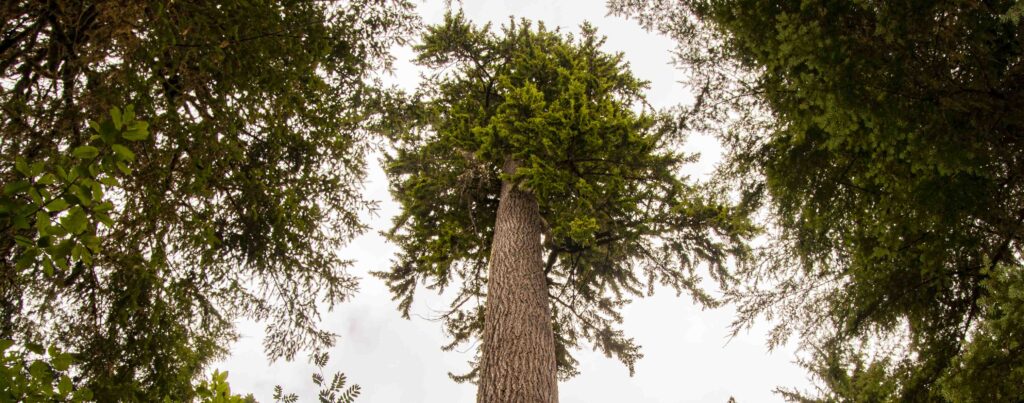
Much of Ecotrust’s early work was based on conserving the rainforest, since the first step is knowing what there is in a rainforest to save. Our pioneering work involved sophisticated mapping of fish populations and forestry health. One of our first atlases was on the relationship between fish and indigenous languages. Since then, Ecotrust has spread out into addressing the natural-resource sectors: Forestry, Food and Farms, Fisheries, Native Programs and then Citizenship.
Historically, we haven’t had a large grass-roots outreach or public-facing side. Ecotrust’s work and programming has been aimed at change agents and decision makers in our respective areas of focus. That changed with Salmon Nation We just produced sophisticated maps and publications. Yet, given our range of publications, in some ways we’re sort of a publishing house. We generate all this content and then try and get it out to the people who need it to make decisions.
NWNL What are some of the subjects of your maps?
DAN ETRA The Atlas of Pacific Salmon is one of the most recent. It’s a status map for all the different species of salmon in the whole Pacific Rim. In accordance with Ecotrust’s work, we defined the geographic boundary of our work as “Salmon Nation” which encompasses the historic Pacific Salmon runs. That region spreads from Alaska all the way down to San Francisco. But technically, it goes all the way over into Japan and Russia.
Some of our other maps detail the status of fisheries and the status of actual salmon runs. We also made maps focused on forestry issues. Most of the maps that we’ve published are on salmon and salmon habitat.
NWNL We are in your office here in the Ecotrust Building with another organization called Wild Salmon Center. I understand they cover with the entire salmon basin, including Russia, a bit of Japan and North America. Do you coordinate with them?
DAN ETRA We do. I’m not familiar with the history of that relationship, but Ecotrust and the Wild Salmon Center have a joint project, called The State of the Salmon Project. That was the primary vehicle for the Atlas of the Pacific Salmon. So, yes, there’s good collaboration between us, especially in the areas of geographic overlap.
NWNL Does Ecotrust have groups, offices or personnel in Russia and Japan?
DAN ETRA No, not in Russia or Japan. But our sister organization, Ecotrust Canada in Vancouver, has a separate staff, separate board of directors and some overlap.
NWNL Having spent time in British Columbia for No Water No Life, it’s interesting to hear about this transboundary coordination. I do want to hear how the tribal nations fit in, but let’s start with how Ecotrust Canada works with Ecotrust U.S.
DAN ETRA The mission and values of both organizations are closely aligned, but they work in slightly different ways. Ecotrust Canada tends to be focused on more directly giving resources into the hands of the community – a more community-based investment approach. Ecotrust U.S. also does that through the Jean Vollmer Natural Capital Fund which invests in community organizations. For example, this building, owned and operated by Ecotrust was partly financed from Jean Vollmer Natural Capital Fund so. There is overlap among the Board of Directors. Building a triple bottom-line economy is ultimately what both organizations are about.
NWNL Your point is that both organizations see economics as a strong driver. Is Ecotrust involved in supporting political policy that fits these goals and objectives that depend on finances?
DAN ETRA Historically, we have taken a non-advocacy-based role. We may support some legislation, but we don’t actively lobby, campaign or do widespread petitioning work. We focus on informing people with different perspectives so they can come together. That said, just recently the Food and Forest program did become involved with some state-level legislation and the national Farm Bill to establish dedicated funds for school cafeteria programs. In selected cases, we will get involved and support legislation or a policy that is in line with our programs. But we don’t have the staff or infrastructure to do so on a large scale.
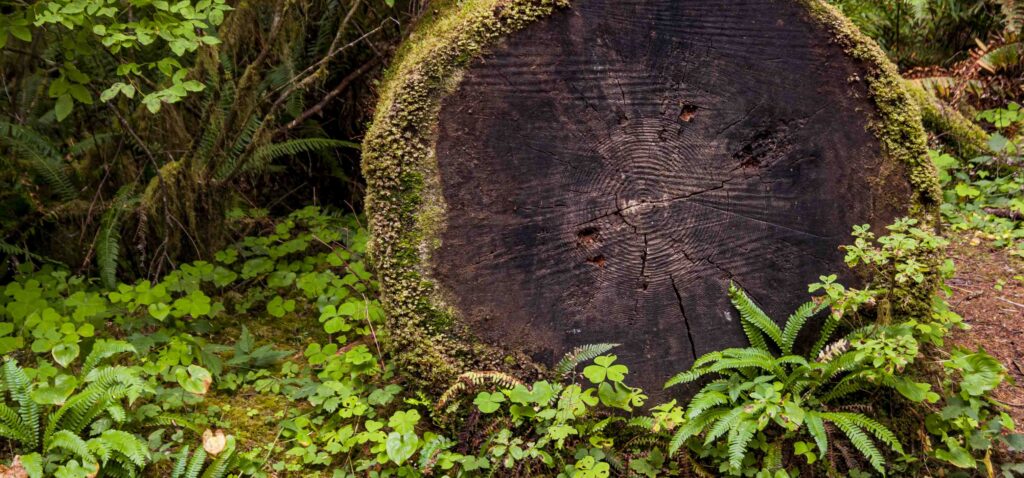
DAN ETRA Conservation needs to make economic sense, as we just discussed. There are ways to conserve through economics. There are ways to conserve through building community capacity. For example, the Forest Stewardship Council [FSC] is a certification for sustainable forestry practices of forest management, longer timber rotations, and selective cutting. So, you should build market mechanisms that support the right type of conservation work because it’s right, but also it makes economic sense and makes money.
NWNL Is this “boutique timbering?”
DAN ETRA It’s not “boutique,” but in terms of overall scale, it is much smaller. Some large companies are also moving into more sustainable harvest practices and again.
NWNL In Canada, I know some emphasis is now going into using woods in a boutique way. They don’t cut as much timber; but what they sell commands a much higher price.
DAN ETRA I think the premium is there. But we’re not buying fine hardwoods from somewhere else in the world. The products are not expensive and are used in the mainstream.
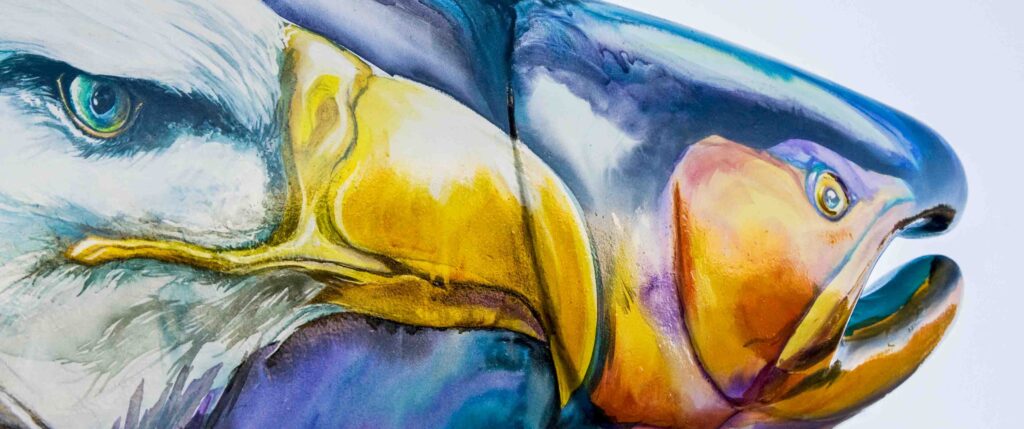
NWNL Let’s turn this discussion from forest to fish….
DAN ETRA This Ecotrust fisheries focus on market capacity-building helps connects fishers and restaurants as part of its Foods and Farms Program. Ecotrust builds relationships in markets that aren’t quite functioning on their own. For instance, it helps that small commercial fisher who doesn’t quite have the volume to work with a distributor, yet restauranteurs want that fish. So, our fisheries program builds that market connection between the fisher and the consumer.
A recent big effort has addressed community-based fisheries management by supporting establishment of coastal marine reserves that would protect and preserve fish habitat. This happened off the coast of California, after the Marine Life Protection Act was passed a couple years ago. Part of that process has been designating areas off the coast as marine reserves. The fisheries program and the GIS mapping systems team brought in Ecotrust to engage the fishing community in collecting information about those fisheries.
Many organizations use only statistical data about landings — data collected by docks about where fish are brought in and where fisher people report. But our work has engaged and collected that data from the fisherman themselves: Where do you fish? What is the value of this? That way, when decisions are made about resources they are based not just on habitat impacts but also on the potential of resulting impacts on communities dependent on that ecosystem. So, I think that of all our programs, probably the vulnerability of fisheries is right now our strongest focus towards understanding some of the economic impacts of ecosystem management.
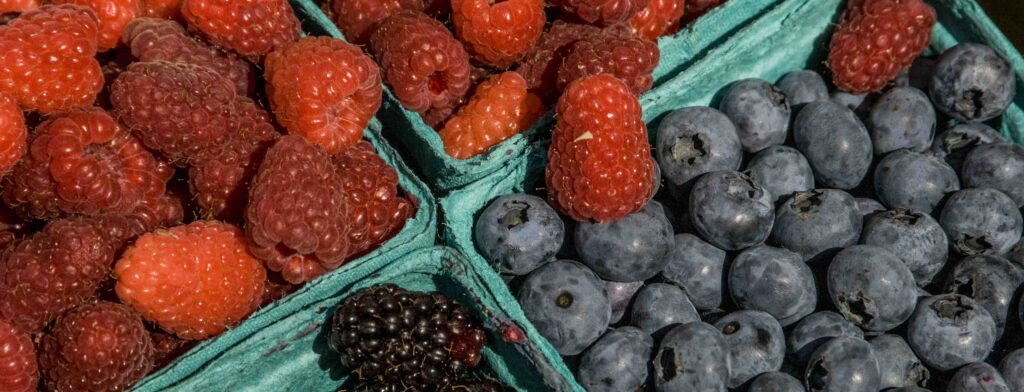
NWNL The next point I’d like you to define is your “Foods and Farms Program.”
DAN ETRA Historically, our Foods and Farms Program has been a very strong farmer-chef connection, operating like “speed dating” for farmers and chefs. Farmers want to sell their product locally, and chefs want to buy it. But farmers can’t easily build relationships with chefs; and chefs don’t have time to find local farmers.
Thus, we set up day events for them to get together. For instance, if I have potatoes and am right across from someone who wants potatoes, we can make a deal right there. That carries into other ways of building relationships beyond annual events. Food and Farms is very focused on how to build a regional food system. That would put money back into the hands of family and community farms – and satisfy growing demands for locally produced food and organic food.
We also work with Portland’s public schools to get local organic foods into school cafeterias. While there are many challenges around that process, we find that kids really love eating fresh food. The challenge we face is that most school cafeterias aren’t set up to cook. They’re only set up to reheat food from a central distributor. If fresh produce is provided to a school kitchen, they don’t know what to do with it. And so, while it’s a complicated process, it’s an amazing project.
NWNL Speaking of your school program and your chef-farmer relationship, our hostess at a fantastic dinner last night explained that Portland has a no-development zone. It seems this Urban Growth Family Zone protects development from spreading into agricultural areas. It seems Portland has so much wonderful fresh food since it’s grown so nearby.
DAN ETRA I think we enable a viable local food economy with these policies we have in place actively supporting farmland preservation. It makes it easier to get food locally.
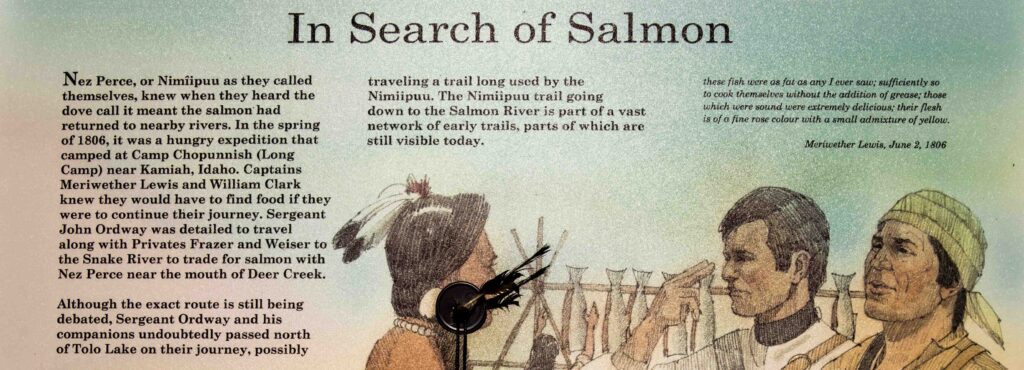
NWNL Another of Ecotrust focus is your Native Nations programs. I missed meeting Elizabeth Woody and her uncle, Louis Pitt, due to needed car repairs. However, to understand the value of Indigenous watershed stewardship, in Canada I interviewed members of the K’tunaxa and Okanagan Nations. While in Kettle Falls, Washington, I interviewed a member of the Coville Confederated Tribes. Further downriver, we’ll meet with Ray Gardner from the Chinook Nation.
DAN ETRA I hope while here you can chat with Elizabeth “Liz” Woody. There are two main prongs or projects that Native Program is focused on right now. Liz Woody is directing the Indigenous Youth Leadership Program – a regional program engaging youth in conversations about place and becoming involved in their community and region.
The other prong of our Native Program is the Buffett Award for Indigenous Leadership endowed by Howard and Peter Buffet. That is a $25,000 grant to Indigenous leaders throughout the region who are nominated by their own communities. The program, now in its sixth year, creates a network of indigenous leaders working on similar issues, but not not aware of each other’s work. Annually, we host an event for a regional community of Indigenous leaders to honor their work and to help build those community connections.
NWNL Geographically, how far does your Native Peoples network spread?
DAN ETRA Because our work is focused on the Salmon Nation regions, this covers the Pacific Northwest region. Our intention is to build a network of Indigenous leaders throughout this whole region. Leadership nominations come in from all tribes in this far-flung net.
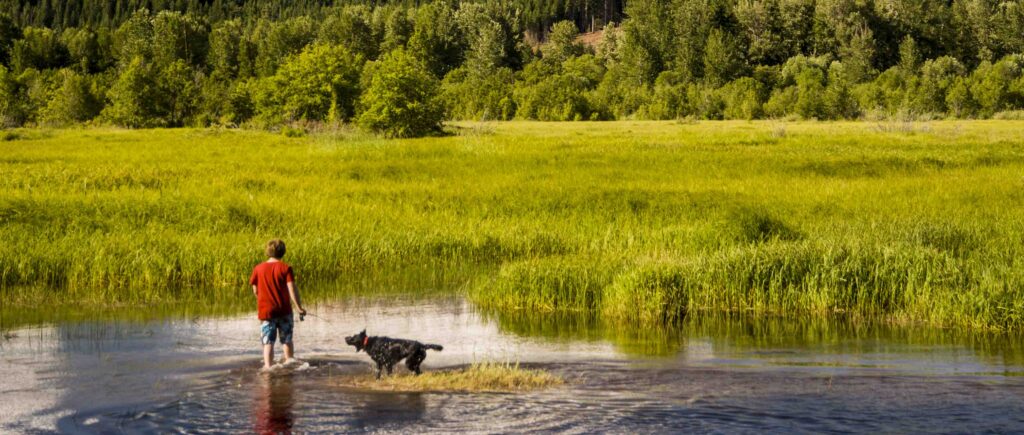
NWNL The last of EcoTrust’s five focuses is the one you are involved in…
DAN ETRA Yes. The Citizenship Program is the newest of the Ecotrust programs. It came into being in 2002-2003 with the launch of Salmon Nation.
EDITOR’S NOTE Unfortunately, we do not have the end of this tape. We apologize, but malfunctions happen. The following notes and research partially address the substance of Dan’s missing response regarding Ecosystem’s Citizenship Program..
Our NWNL contemporaneous Expedition Journal notes Dan stated that, working with Salmon Nation, Ecotrust established its “Citizenship Focus” in 2003 to create a bioregional citizenry focused on social, cultural, subsistence, environmental and economic issues.
Four years after this NWNL interview, Ecotrust’s Founding President Spencer Beebe presented a speech at TedXPortland 2011. His presentation, A Magic Canoe, conjured a canoe expanding as more people get on board. In this canoe, bio-regional citizens learned to paddle together into an unpredictable world to create “more resilient communities, economies and ecosystems [via a] global social movement that would promise a more reliable prosperity for people and place.”
Beebe, former President of The Nature Conservancy International Program and Founding President of Conservation International, based his vision for EcoTrust on “acknowledging humankind as an inseparable part of the natural world.” He believed a bottom-up approach of community initiatives could protect soil, water, cultures and history.
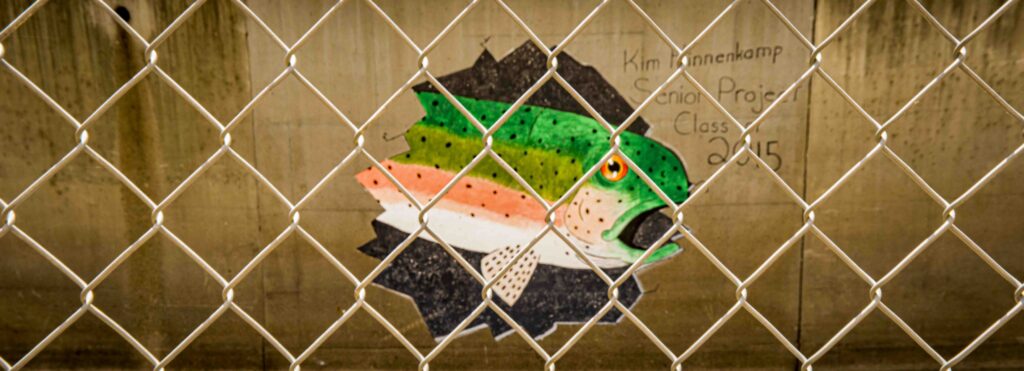
Posted by NWNL on April 2, 2024.
Transcription edited and condensed for clarity by Alison M. Jones.
All images © Alison M. Jones, unless otherwise noted. All rights reserved.
